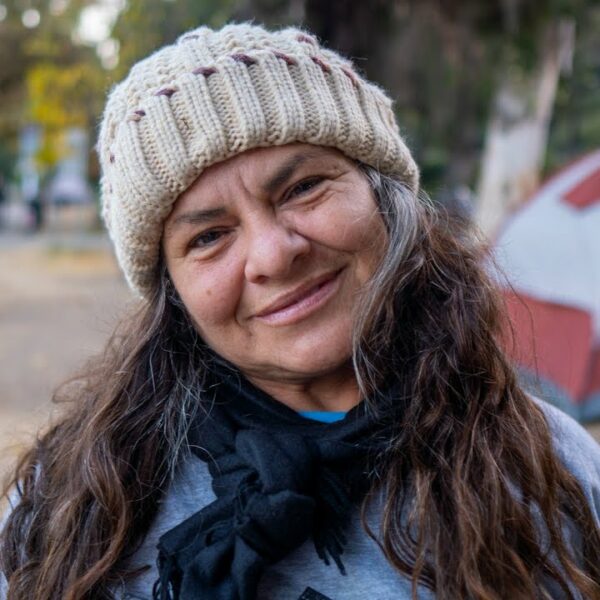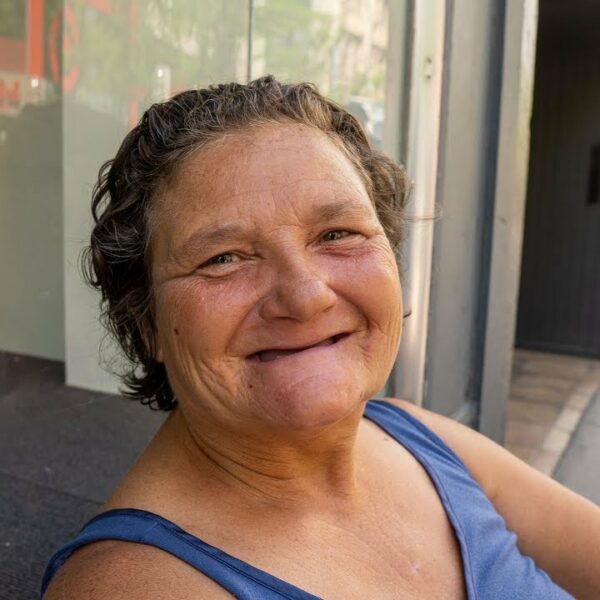One of the most common misconceptions about homelessness in the U.S. is that unhoused folks don’t want to work. But a new study calls that myth into question.
A survey of more than 3,200 unhoused people in California by the Benioff Housing and Homelessness Initiative at the University of California San Francisco found that half of unhoused people want to work. However, they can’t find jobs that help them afford local rent. Some participants even said they had traded their labor for housing before losing their homes because their jobs ended.
“People want to tell themselves stories about unhoused people being too lazy to work, but the finding that half or more are actively looking for work really isn’t surprising,” Margot Kushel, who leads the BHHI, told Invisible People in an interview.
The connection between work and stable housing is pretty simple. But the relationship has become more complex since the pandemic began in March 2020.
Since then, California’s median home price has increased by more than 36% up to around $798,000 as of June 2023, according to Redfin. Rents in California have increased by more than 25% over the last year up to more than $2,900 per month as well, Zillow data shows.
While rents and home prices have increased, local wages have not kept pace. Data from the Bureau of Labor Statistics shows that real average hourly earnings advanced just 0.2% in May 2023 compared to May 2022.
The BHHI study suggests that the disconnect between wage growth and the cost of living puts additional pressure on low-income households struggling to pay rent. Nearly a quarter of respondents said that lost or reduced income was the primary reason they lost their homes. Many other respondents said they simply didn’t make enough to pay rent and reported a median monthly household income of about $960 before losing their home.
“The economic reasons all point to the fact that, for most, the rent was too high for their income,” the study concluded.
National Homelessness Law Center Board Member Khadijah Williams told Invisible People that some people consider unhoused folks lazy because they don’t “participate in traditional capitalistic forms of grind.” However, Williams added that surviving on the streets takes a lot of work. Plus, many unhoused people’s trauma can impact their ability to find stable work.
“When you are homeless, and this is me speaking from my own experience, you’re not seen. You don’t exist. There is assumed to be something wrong with you,” Williams said. “All of these messages are out there, everywhere, about how homeless people are sub-human. It’s absolutely disgusting and terrifying. I still have challenges with my own sense of worth and self-esteem because of how I was treated as a homeless child. It still impacts me – that’s how bad it is.”
Some unhoused folks have also shared their experiences with Invisible People about how difficult it can be to return to the workforce after losing their homes. For instance, David, in Austin, Texas, told Invisible People that he moved to Austin to work in construction. However, he could not find a job after his backpack and identification documents were stolen from him.
“I’ve tried to get work, but without my ID, it’s pretty helpless,” David said.
How You Can Help
Now is not the time to be silent about homelessness in California or anywhere else. Unhoused people deserve safe and sanitary housing just as much as those who can afford rent or mortgage.
Poverty and homelessness are both policy choices, not personal failures. That’s why we need you to contact your officials and tell them you support legislation that:
- Streamlines the development of affordable housing
- Reduces barriers for people experiencing homelessness to enter permanent housing
- Bolsters government response to homelessness
Together, we can solve homelessness.













